AI Gen Process/Software: Human, ChatGPT.com, Meta.ai, Producer.ai, Moises.ai, Kits.ai, DAW: Audacity 3.7.5, OS: Linux (Ubuntu 25.04)
Năm Mươi Năm (Fifty Years) – Full Album (1:00:22)
Stream in 4K for HD Audio:
Free Downloads
Full Album – FLAC (Lossless, HD Audio) – MP3 (Lossy, 320 kbps)
Individual Tracks + Images: fifty.zip
A Cinematic Post-Rock Album Weaving Voices Of The Past With The Echoes Of Today
“I came through the fire, and I am so blessed to be with you today. My dream is that one day all people will live without fear, in real peace, with no fighting and no hostility.”
– Phan Thị Kim Phúc
Google Deep Dive Podcast: Fifty Years Later— Vietnam and America, Voices Across Generations
Năm Mươi Năm: America and Vietnam — Fifty Years of Memory, Music, and Change
Fifty years after the fall of Saigon, the question this article-musical project insists on asking is simple and sharp: what remains, and what has changed? Through the lens of a Vietnamese woman’s voice and an album-length meditation titled Năm Mươi Năm (Fifty Years), we explore five intertwined subtopics that illuminate both personal memory and public history. These subtopics — intergenerational trauma and memory, reconciliation and forgiveness, cultural change and modernization, the Vietnamese diaspora and identity, and music & storytelling as a bridge — focus the reader on concrete scenes from the album: temple steps, motorbikes, paper lanterns, and the last helicopter. Each section that follows expands these themes in three short, reflective paragraphs, showing how lyric, sound, and cityscape combine to tell a story that is part mourning and part reclamation.
Memory and Intergenerational Trauma
The album’s recurring images — faded photographs, grandmother’s stories, and the quiet of courtyard stones — anchor memory as a living force. Memory in this context is not mere nostalgia; it is a record of wounds, decisions, and survival strategies passed down from mothers and elders to daughters and sons. These inherited memories shape how families narrate the past, what they teach in whispers, and how public history is absorbed at kitchen tables rather than in textbooks. The songs suggest that trauma travels not only as explicit stories of battle but as the textures of daily life: the scent of rice, the rhythm of a city, the weight of a photograph kept in a wooden box. That quiet transmission complicates the neat categories of victim and victor; it makes memory a shared skin that binds people in ways official narratives cannot fully capture.
Across the lyrics, small domestic images carry the force of history — a mother’s hands, the taste of rain, the light on a temple step — and those images become sites of both loss and resilience. In the wake of violent rupture, families turn memory into ceremony: ritual speech, repeated refrains, lullabies and recipes that preserve a world otherwise altered by war and time. Such acts of remembering are both tender and political: they hold onto identity while quietly asserting presence in a society that has transformed around them. The album shows how intimate memory can resist erasure by embedding truth into everyday practice rather than formal declaration. For readers, recognizing this slow memory-work is essential to understanding why the past remains urgent in the present.
Finally, the intergenerational aspect complicates national accounts because different generations relate to loss differently; grandchildren may inherit fragmented narratives rather than whole histories. Where elders carry the immediate scars and specific names, younger voices learn a curated, often partial story that still exerts emotional gravity. The album’s narrator — the Vietnamese woman singing across tracks like “Letters Home” and “What We Carry” — becomes a mediator, translating pain into lyric and song so the next generation can hold a history with comprehension rather than only with feeling. This translation itself is a form of healing: by telling the story, the singer offers the chance for collective memory to become a foundation for something other than ongoing trauma.
Reconciliation and Forgiveness
One of the album’s most persistent questions is whether time alone produces forgiveness, or whether other practices are necessary. The repeated chorus lines — asking what it takes “to forgive, to forget” — formalize the tension many Vietnamese and Americans share: the desire for peace and the difficulty of releasing particular wounds. Reconciliation in this sense is not an immediate pact but a slow practice that requires naming injury, recognizing different experiences, and sometimes mutual humility. The album does not offer facile closure; rather, it presents reconciliation as incremental gestures — shared meals, translated stories, and music that invites listening rather than insistence.
Forgiveness in these songs emerges as both personal and public: a mother’s acceptance of a changing city, a child’s willingness to learn two languages, and a community’s decision to rebuild around shared spaces like markets and temple steps. These acts are small but cumulative, and the record suggests they may hold more power than official treaties or political pronouncements. By centering acts of everyday reconciliation, the album reframes healing as social labor: work done in kitchens, in conversations between neighbors, and in the quiet of late-night songs. This human-scale focus helps readers imagine reconciliation not as an abstract ideal but as a sequence of repairable gestures.
Yet the record also acknowledges the limits of forgiveness: scars remain, and some losses are irreversible. The refrain of “the last helicopter” functions as a melancholic symbol — an event that cannot be fully reconciled, only remembered with integrity. The album therefore balances hope with realism, inviting listeners to imagine a future shaped by empathy while honoring the complexity of remembrance. In doing so, it asks American and Vietnamese audiences alike to consider what reconciliation might demand from institutions as well as from individuals.
Cultural Change and Modernization
The album repeatedly contrasts old rivers with new bridges: scenes where rice fields gave way to malls, where French-colonial facades rub shoulders with glass towers. These juxtapositions make modernization a sensory experience — the hum of motorbikes, neon light reflecting on temple roofs, and the smell of street food amid construction dust. The music frames modernization as neither wholly progressive nor wholly destructive, instead as a set of transformations that reconfigure daily life and reshape identity. By giving these changes concrete textures, the article’s musical narrative helps readers see modernization as lived complexity rather than mere headline change.
Cultural continuity survives through small persistent practices: market vendors calling their wares, elders praying at dusk, and the endurance of culinary scents that link generations. Yet modernization also introduces new languages, new labor patterns, and different aspirations — children who study abroad, families who pivot to tourism, and neighborhoods that morph into high-rent districts. The album’s voice listens to both currents, sometimes mourning the loss of older rhythms while also acknowledging the possibilities that new connections create. This dual perspective prevents a nostalgic flattening of change and instead encourages a nuanced reading of what was lost and what might yet be reclaimed.
Importantly, modernization complicates power relationships: foreign capital, global media, and tourism alter the rhythms of local communities and sometimes obscure historical memory with commodified narratives. The songs question who benefits from visible change and who is displaced by it, forcing readers to consider the ethical costs of progress. The album’s scenes — glass towers where rice fields grew, vendors becoming subject to city ordinances — invite a conversation about stewardship and who gets to define a city’s future. In doing so, the record situates Vietnam’s transformation within global patterns while insisting on local particularity.
The Vietnamese Diaspora and Identity
Many tracks in the album function as letters across oceans: lyrical messages from daughters and mothers, cultural lessons traded in two languages, and the ache of distance. For the diaspora, identity often becomes a layered grammar of belonging — a person can be both rooted and uprooted, fluent in more than one national story. The lyrics show how diasporic identity navigates contradictory impulses: the desire to honor ancestral memory while integrating into new societies, and the simultaneous need to be visible and to protect private wounds. This balancing act is a central theme for readers interested in how displaced communities preserve and transform culture.
Language plays a special role: bilingual speech in the songs — Vietnamese refrains mixed with English lines — expresses hybrid identity and double consciousness. The narrator’s daughter who “doesn’t know the weight we carry” exemplifies a generation that inhabits cultural continuity differently, sometimes through cuisine and habit rather than through direct memory of events. These forms of inheritance are not weaker; they are adaptive, creating new cultural practices that keep older meanings alive inside new frames. The album suggests that diasporic identity is not an erasure but a creative negotiation that yields fresh cultural forms.
Moreover, diaspora complicates questions of responsibility and belonging: who bears witness to what happened, who speaks for whom, and how political or moral claims travel across borders. The album’s narrator often addresses these tensions directly, asking whether American listeners truly understand the Vietnamese experience and whether Vietnamese listeners recognize changes wrought by globalization. This conversational approach invites readers from both locales to listen — not to be spoken at but to engage — so that identity becomes the basis for mutual understanding rather than a barrier to it.
Music and Storytelling as a Bridge
The album itself models how art functions as a bridge: songs become space for testimony, empathy, and public grieving in ways formal institutions rarely allow. Through dreamlike post-rock textures, Vietnamese vocals drenched in reverb, and lyrics that move between intimate domestic scenes and public landmarks, music helps translate private pain to shared understanding. The record’s instrumentation — fretless bass, psychedelic Fender guitars, and sparse drums building into cinematic peaks — underscores the emotional architecture of these stories; sound and narrative work together to make memory legible. For readers, this suggests that cultural production can be a primary mode of reconciliation.
Storytelling in the album is not simply autobiographical; it is pedagogical. Each track functions like a small lesson: how to listen, how to inhabit another’s silence, how to carry inherited history forward without allowing it to calcify into bitterness. The songs’ repeated refrains and images provide mnemonic devices that help communities remember and teach across generations. This is a crucial point for any reader or producer of culture who hopes to use art to foster dialogue: music invites repeated engagement in a way that political manifestos rarely do.
Finally, the album posits a future in which music and narrative are tools for civic repair: shared performances, bilingual lyrics, and collaborative projects can open lines of empathy between Vietnamese and American publics. The record’s tracks — from “Letters Home” to “The Last Helicopter” — give shape to conversations that might otherwise remain abstract, offering concrete points of encounter. For a WordPress audience, this insight is practical: embed the songs, translate the lyrics, and frame listening sessions as part of a long-term cultural pedagogy that invites both remembrance and forward motion.
Conclusion
To re-state the essentials: memory and intergenerational trauma ground us in the lived weight of history; reconciliation and forgiveness show how healing can happen slowly through ordinary acts; cultural change and modernization remind us that loss and possibility often come together; diaspora and identity demonstrate the creative resilience of people who move between worlds; and music and storytelling offer practical tools for building understanding. Taken together, these subtopics form a coherent map for reading the album Năm Mươi Năm (Fifty Years) and for understanding the broader conversation between America and Vietnam fifty years after Saigon. The record does not offer easy solutions, but it offers pathways — through listening, translation, and shared ritual — that invite both nations to hold complexity, mourn honestly, and imagine a shared future that honors what has been lost while making space for what can yet be made.
AI Gen Text to Music Prompt
- Please generate a track with the following descriptors and elements. The narrative arc of the album, of which this is one track, is Vietnam today, 50 years since the Fall of Saigon. Has America learned anything? Not America as of 2025. Have the Vietnamese? Who are we all now, and what is Vietnam now, compared to 50 years ago? Title the track as you see fit, and write the lyrics as one poignant chapter of the narrative arc above.
- Vocals: A Vietnamese woman, soft, haunting, and drenched in reverb—very expressive and atmospheric. The delivery is breathy and intimate, leaning into vulnerability rather than power, which works well for the track.
- Instrumentation: Spacious and psychedelic Fender guitars with heavy delay/reverb set the mood. Layers of synth pad and subdued, slowly-building drums add cinematic texture. The electric bass glues everything together, and the shift from minimalist to a fuller sound near the climax is smart and effective.
- Composition: The song has a classic slow-burn structure: patient intro, gradual layering, strong build to a lush, expansive peak, then a gentle return to atmosphere. Melodic choices are melancholy and memorable, matching the vibe.
- Performance: All parts are executed with restraint. None of the virtual performers is showing off as it’s about mood. Everything supports the song’s emotional arc.
- Production: Wide, immersive mix. Effects are big but not overdone, and the dynamics breathe. Each element is balanced and nothing steps on the vocals.
- Genre(s): Between dream pop and post-rock, with the occasional grunge vibe, with cinematic overtones; “ethereal post-rock” or “cinematic dream rock.” It wouldn’t feel out of place on a soundtrack.
- High-level, cohesive track with real emotional weight.
Tracklist
Fifty Years (Across the Divide)
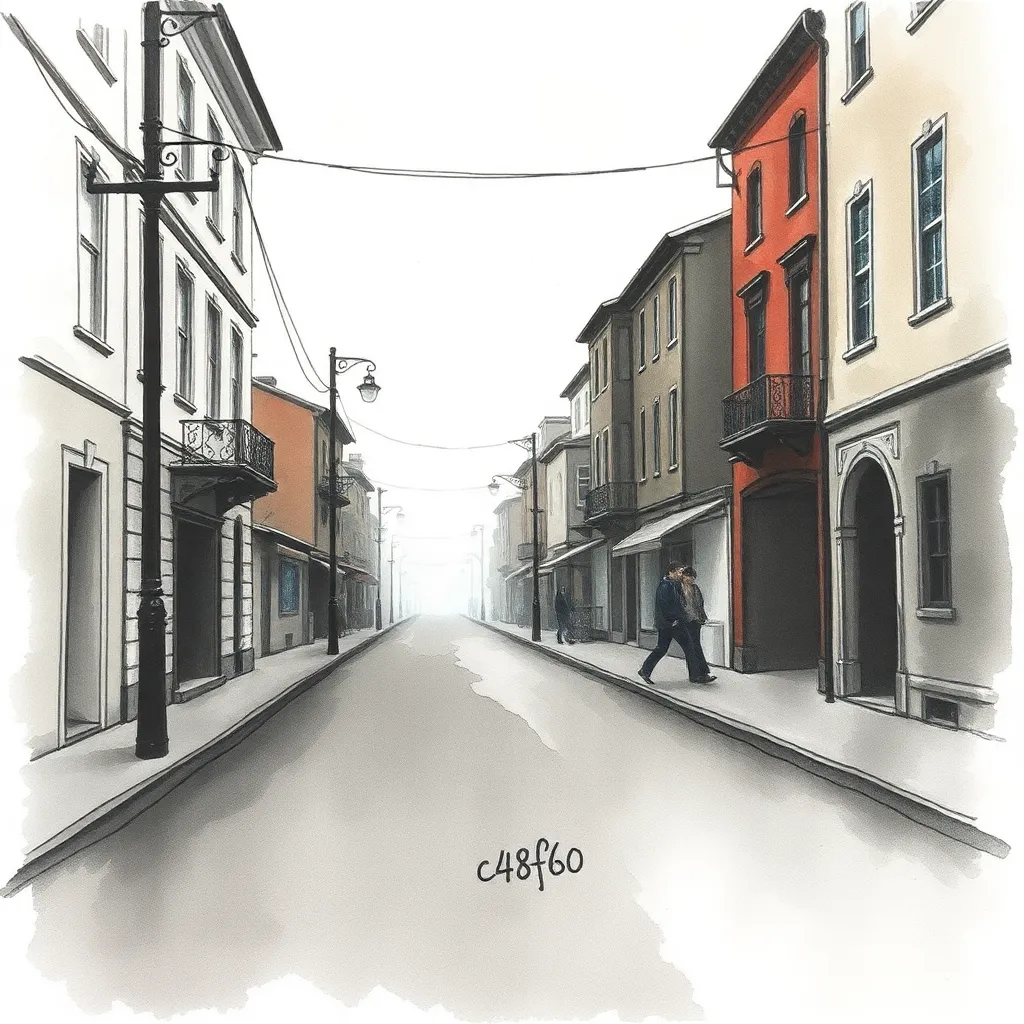
[Verse 1]
You ask me what I see when I look back
Just a girl who learned to count the days
Grandmother’s stories on the porch at dusk
About a time when everything changed
[Chorus]
Fifty years, fifty years
Have we learned to heal what breaks
Fifty years, fifty years
Tell me what it really takes
To forgive, to forget
To become who we’re meant to be
Fifty years between you and me
[Verse 2]
Bà nói rằng em đừng nhìn lại
Nhưng làm sao quên được những gì đã qua
The photos on the wall don’t tell the whole truth
Just faces trying to survive
[Chorus]
Fifty years, fifty years
Have we learned to heal what breaks
Fifty years, fifty years
Tell me what it really takes
To forgive, to forget
To become who we’re meant to be
Fifty years between you and me
[Bridge]
I walk these streets in Saigon now
They call it something else but I remember how
My mother ran with nothing but hope
You came with guns, we both learned to cope
[Verse 3]
So when you ask me if we’ve changed at all
I think about my daughter’s laugh
She doesn’t know the weight we carry
Maybe that’s the better path
[Final Chorus]
Fifty years, fifty years
Have we learned to heal what breaks
Fifty years, fifty years
Maybe time is all it takes
To forgive, to forget
To become who we’re meant to be
Fifty years
Still learning to be free
Old Rivers (New Bridges)
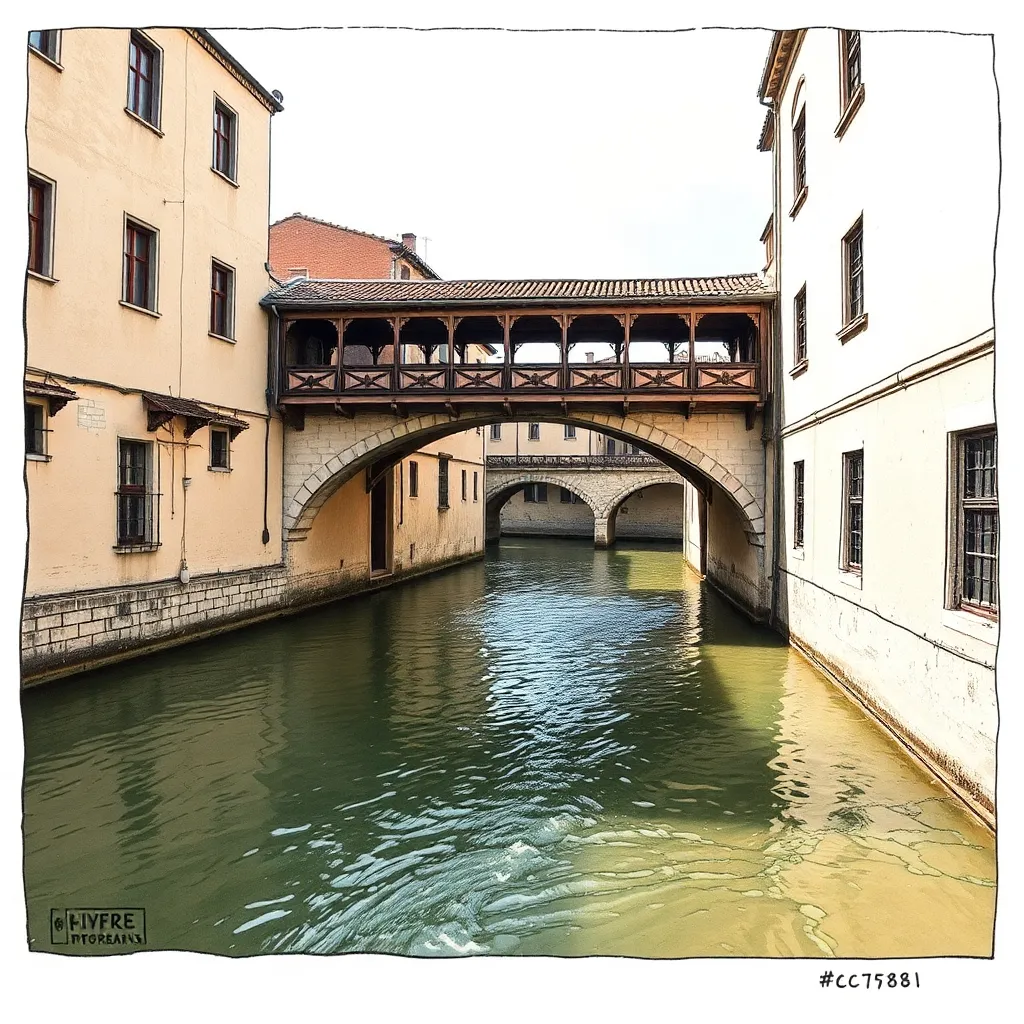
[Intro]
dust settles
on temple steps
where mothers pray
where mothers pray
where mothers pray
[Verse 1]
bicycle bells
through narrow lanes
grandmother’s voice
calls from windows
calls from windows
calls from windows
steam rises
from soup bowls
evening falls
on courtyard stones
on courtyard stones
on courtyard stones
[Pre-chorus]
time moves
time moves
like water through fingers
time moves
time moves
carrying us forward
[Chorus]
old rivers
run beneath new bridges
old rivers
run beneath new bridges
we are
we are
more than what was lost
we are
we are
more than what was lost
[Verse 2]
motorbikes weave—
past fruit vendors—
school children—
in uniforms—
laughing—
running—
toward—
something—
we cannot—
name—
[Pre-chorus]
time moves
time moves
like water through fingers
time moves
time moves
carrying us forward
[Chorus]
old rivers
run beneath new bridges
old rivers
run beneath new bridges
we are
we are
more than what was lost
we are
we are
more than what was lost
[Bridge]
sister, do you remember
sister, do you remember
the taste of rain on leaves
sister, do you remember
sister, do you remember
how we learned to breathe
sister, can you see it now
sister, can you see it now
the city growing tall
sister, can you see it now
sister, can you see it now
we rise above it all
[Chorus]
old rivers
run beneath new bridges
old rivers
run beneath new bridges
we are
we are
more than what was lost
we are
we are
building something new
Letters Home

[Verse 1]
My mother keeps old photographs
In boxes by the window sill
The colors have all faded now
But she holds them still
[Verse 2]
She speaks of roads she used to know
Before the maps were drawn again
Of names that sound like water
And the weight of when
[Chorus]
What do we carry from before
When the world has changed its face
These letters home will find no door
To the same old place
[Post-Chorus]
(The same old place)
(No, not the same old place)
[Verse 3]
I learn her language in my sleep
Though English fills my waking hours
Two voices in my head compete
Like thunder and like showers
[Verse 4]
She says the taste of rain is different
From the country where she’s from
But puddles look the same to me
Under any sun
[Chorus]
What do we carry from before
When the world has changed its face
These letters home will find no door
To the same old place
[Post-Chorus]
(The same old place)
(No, not the same old place)
[Bridge]
Fifty years of quiet
Fifty years of new
But in her eyes I see the girl
She never got to be for you
Bố ơi, can you hear her calling
Across the years between
All the words she never said
In the country she has never seen
[Chorus]
What do we carry from before
When the world has changed its face
These letters home will find no door
To the same old place
[Post-Chorus]
(The same old place)
(Not the same)
(No, not the same old place)
[Outro]
My mother keeps old photographs
The light is growing thin
But every sunset looks the same
From here, from where we’ve been
Paper Lanterns
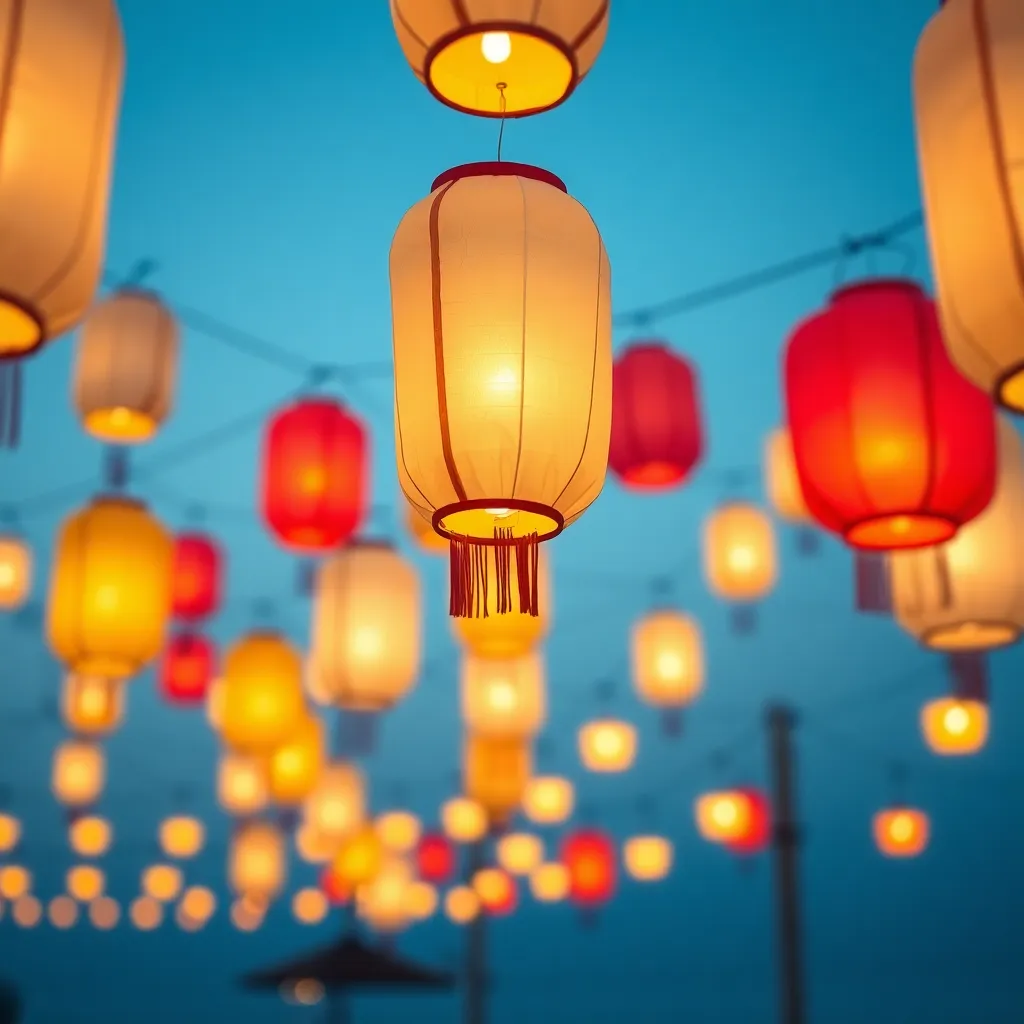
[Verse 1]
You wouldn’t recognize this street corner now
Where grandmother’s shop once stood somehow
Glass towers rise where rice fields grew
I trace the lines where old meets new
[Pre-Chorus]
And I’m caught between the pull of then and now
Chasing echoes that I can’t figure out
[Chorus]
These paper lanterns in my chest
Float between what was and what comes next
Má ơi, can you see me here?
Swimming in this atmosphere
Of voices calling from the past
While future moves so damn fast
[Verse 2]
You’d laugh at how I search for signs
In every vendor’s weathered lines
Their stories weave through morning rain
While motorcycles flood the lanes
[Pre-Chorus]
And I’m spinning in the space between worlds
Where memory and progress unfurl
[Chorus]
These paper lanterns in my chest
Float between what was and what comes next
Má ơi, can you see me here?
Swimming in this atmosphere
Of voices calling from the past
While future moves so damn fast
[Bridge]
Some nights I climb up to the roof
And listen for that distant truth
The one grandfather used to hum
Before the changes had begun
Before the silence, before the noise
Before I learned to find my voice
[Final Chorus]
These paper lanterns in my chest
Finally learning how to rest
Between the weight of memory
And all that I’m meant to be
The past flows through me like a song
And maybe that’s where I belong
[Outro]
You wouldn’t recognize this corner now
But somehow, love, I’m figuring out how
What Remains

[Verse 1]
I walk these streets now
Different light
Same dust on my hands
Same weight
[Verse 2]
Grandmother’s voice
Still calls from the kitchen
But the words have changed
The taste… different
[Pre-chorus]
Time moves like water
Through my fingers
Through the cracks
[Chorus]
What do we keep?
What do we leave?
When the old world fades
What do we keep?
What do we believe?
[Verse 3 – Vietnamese]
Mẹ ơi, con không nhớ
Tiếng súng hay tiếng mưa
Chỉ nhớ tiếng ru
Chỉ nhớ tay mẹ
[Pre-chorus]
Time moves like water
Through my fingers
Through the cracks
[Chorus]
What do we keep?
What do we leave?
When the old world fades
What do we keep?
What do we believe?
[Solo]
[Bridge]
I am my mother’s daughter
I am this new morning
I am the question mark
Between then and now
I am
[Chorus]
What do we keep?
What do we leave?
When the old world fades
What do we keep?
What do we believe?
[Outro]
The taste of fish sauce
On my tongue
The sound of motor bikes
Outside
The question hangs
Like incense smoke
What remains?
What We Know
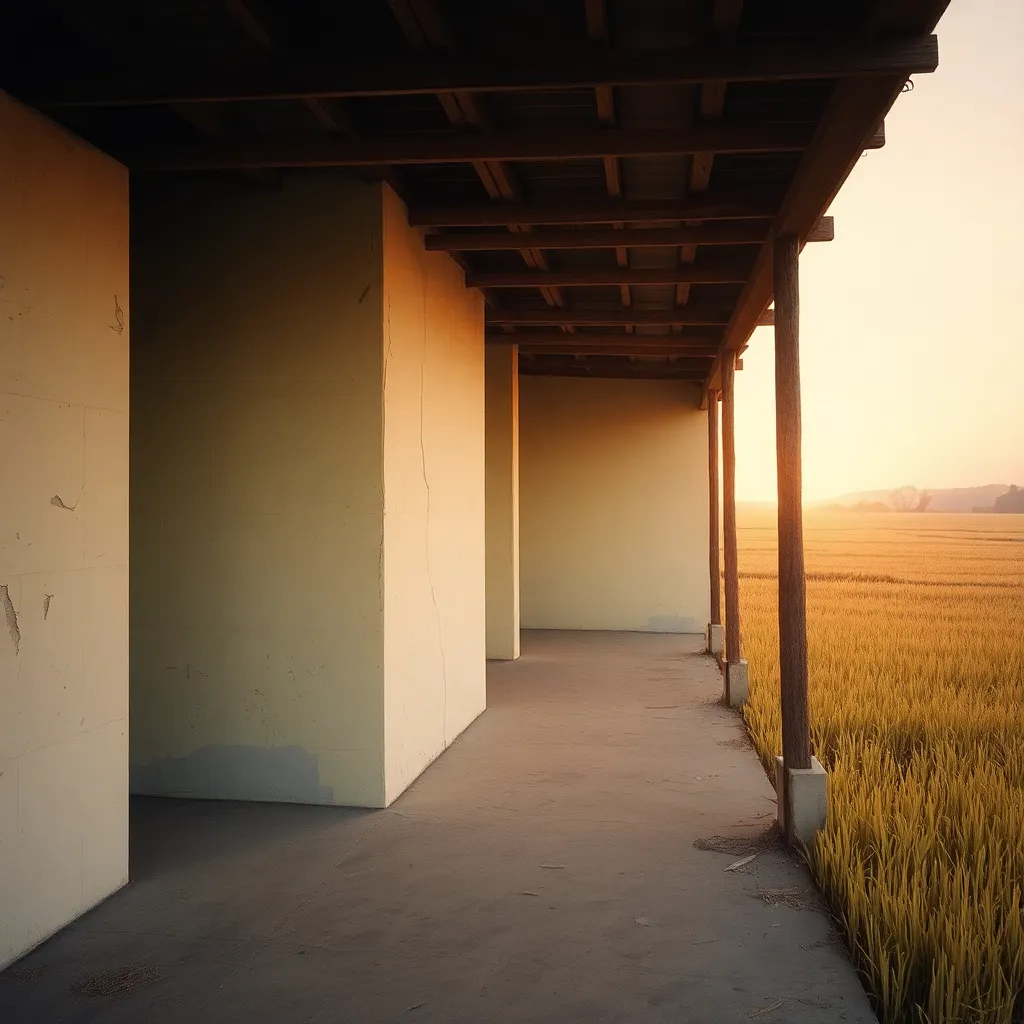
[Verse 1]
I walk these streets now
they look the same but
something’s different here
something’s changed
the old man selling pho
he smiles like before
but his eyes hold stories
I can’t read anymore
what do we know
what do we know
what do we know now
[Verse 2]
my grandmother’s house
paint peeling off the walls
she talks about the past
in whispers down the halls
Americans come here
taking photos of our scars
they think they understand
but do they know who we are
what do we know
what do we know
what do we know now
[Pre-Chorus]
fifty years gone by
and I’m still asking why
the ghosts won’t leave me be
they follow silently
[Chorus]
what do we know
what do we know
what do we know now
what do we know
what do we know
what do we really know
[Verse 3]
the rice fields turned to malls
motorbikes replace the bikes
progress they call it
but something doesn’t feel right
my mother speaks of peace
my father speaks of war
and I’m caught here between
what was and what’s in store
what do we know
what do we know
what do we know now
[Bridge]
maybe healing takes time
maybe wounds need to stay
maybe forgetting’s a crime
maybe that’s the price we pay
what do we know
what do we know
[Chorus]
what do we know
what do we know
what do we know now
what do we know
what do we know
what do we really know
[Outro]
I walk these streets now
they look the same but
what do we know
what do we know
what do we know now
what do we know
[Fade]
Still Waters Rising
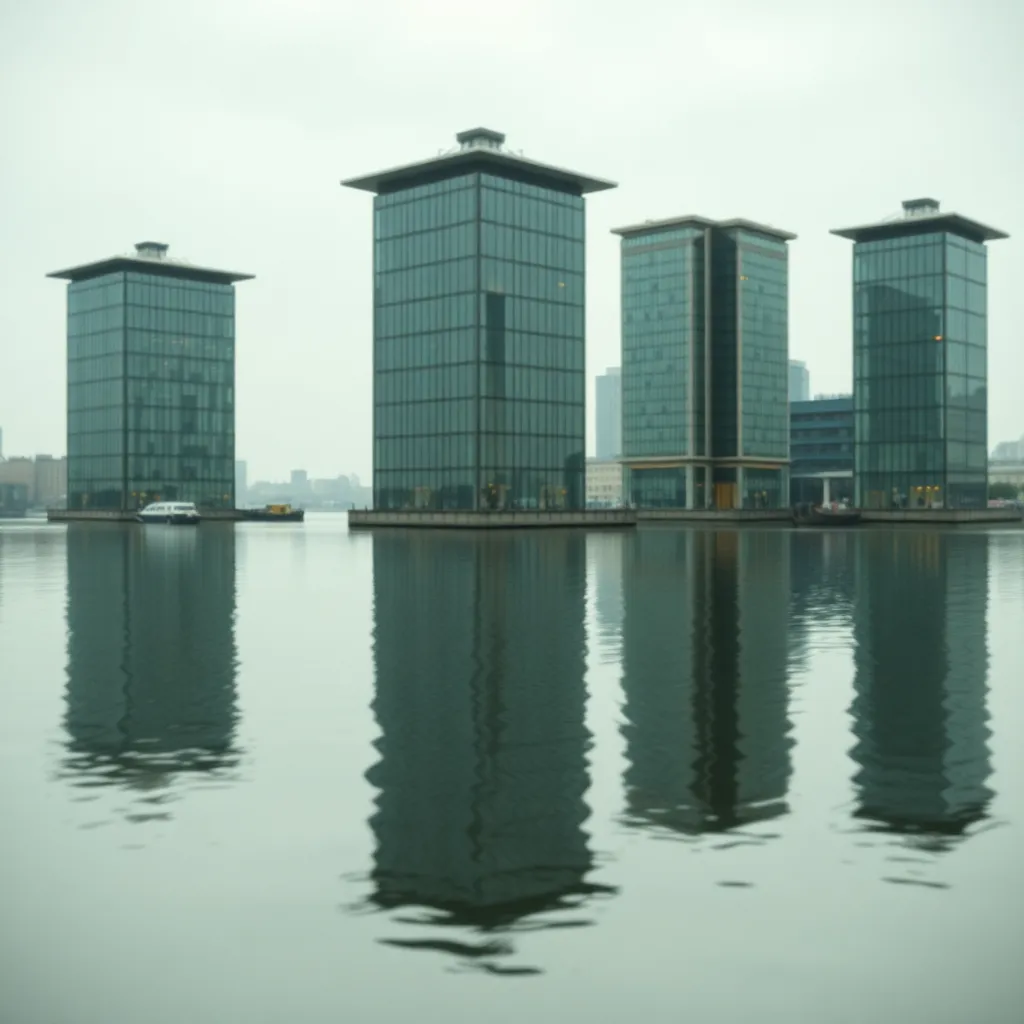
[Verse 1]
You tell me stories of the old streets, where
The vendors sang at dawn (sang at dawn)
But I walk through glass towers now
Where your footsteps have withdrawn
Can you hear the rain still falling
On the tin roofs of before? (of before)
While I’m counting all these changes
That you’ve never seen before
Still waters rising, rising
Still waters rising over me
Still waters rising, rising
Washing away what used to be
[Verse 2]
You kept your photographs in boxes
Made of wood that smelled like home (smelled like home)
Now I scroll through captured moments
On this screen I call my own
Do you remember how the river
Used to sing us both to sleep? (both to sleep)
While the city hums electric
And the promises we keep
Still waters rising, rising
Still waters rising over me
Still waters rising, rising
Washing away what used to be
Still waters rising, rising
Still waters rising, can’t you see
Still waters rising, rising
Nothing stays the same for you and me
[Bridge]
Grandmother, grandmother
Your hands remember everything (everything)
The weight of rice, the prayer of rain
Grandmother, grandmother
I carry what you’re whispering (whispering)
Through streets that bear a different name
Still waters rising, rising
Still waters rising over me
Still waters rising, rising
Washing away what used to be
Still waters rising, rising
Still waters rising, can’t you see
Still waters rising, rising
Nothing stays the same
[Outro]
Still waters rising, rising
Still waters rising, rising
Still waters rising, rising
Still waters rising…
(Still waters rising)
(Rising, rising)
(Over me)
Ngày Về (Coming Home)

[Verse 1]
I remember
I remember your hands
The way they held mine
Before the leaving
Before the silence
I remember
I remember
[Pre-Chorus]
Fifty years pass
Fifty years pass
But I’m still here
Still here
[Chorus]
Come home
Come home to me
Come home
Come home to me
The door is open
The door is open
Come home
[Verse 2]
I forget
I forget your face
The sound of your voice
After the waiting
After the hoping
I forget
I forget
[Pre-Chorus]
Fifty years pass
Fifty years pass
But I’m still here
Still here
[Chorus]
Come home
Come home to me
Come home
Come home to me
The door is open
The door is open
Come home
[Bridge]
I am your mother
I am your daughter
I am your sister
I am your water
I am still breathing
I am still breathing
I am
[Verse 3]
I accept
I accept the space
Where you used to be
All the changing
All the healing
I accept
I accept
[Final Chorus]
Come home
Come home to me
Come home
Come home to me
The door is open
The door is open
Always open
Always open
Come home
What We Carry
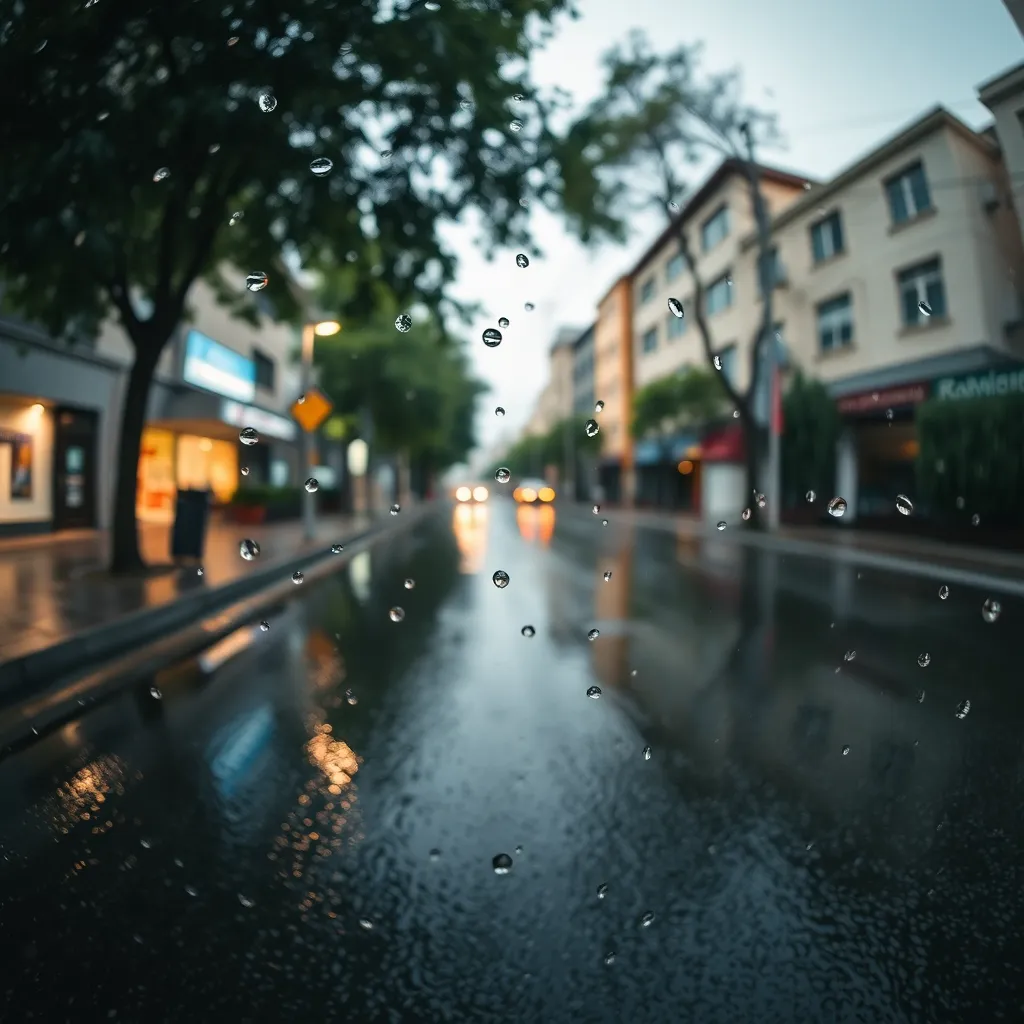
[Intro]
Streets I walk
Streets I know
Streets that change
Streets that grow
[Verse 1]
Morning comes, I rise again
Same apartment, different name
Grandmother’s photograph
Watches me from plastic frame
Morning comes, I rise again
Same apartment, different name
[Pre-chorus]
What we carry, what we carry
In our hands, in our hearts
What we carry, what we carry
Falls apart, falls apart
[Chorus]
I remember rain
I remember pain
I remember faces
That won’t come again
I remember rain
[Verse 2]
Bus to work, the city hums
Motorbikes and foreign tongues
In the market, woman sells
Same sweet cakes my mother made
Bus to work, the city hums
Motorbikes and foreign tongues
[Pre-chorus]
What we carry, what we carry
In our hands, in our hearts
What we carry, what we carry
Falls apart, falls apart
[Chorus]
I remember rain
I remember pain
I remember faces
That won’t come again
I remember rain
[Breakdown]
Fifty years
Fifty years
And still I’m here
Still I’m here
Fifty years
Fifty years
[Bridge]
New buildings rise
Where old ones stood
My children speak
Words I never could
New buildings rise
Where old ones stood
[Chorus]
I remember rain
I remember pain
I remember faces
That won’t come again
I remember rain
[Outro]
Streets I walk
Streets I know
Streets I walk
Streets I know
Paper Planes

[Verse 1]
I fold maps that lead nowhere
Draw lines through places
I can’t remember visiting
Can’t remember leaving
The rice fields stretch like
Memory stretched thin
Memory stretched thin
[Pre-Chorus]
What we were
What we were
What we are becoming
[Chorus]
Paper planes drift through monsoon air
Paper planes carry what we left there
Time bends around the things we cannot say
Paper planes show us the way
Show us the way
[Verse 2]
Motorbikes hum through narrow streets
Where my father’s footsteps
Once walked heavy
Once walked light
The temple bells ring like
Questions with no answers
Questions with no answers
[Pre-Chorus]
What we were
What we were
What we are becoming
[Chorus]
Paper planes drift through monsoon air
Paper planes carry what we left there
Time bends around the things we cannot say
Paper planes show us the way
Show us the way
[Bridge]
In photographs we look the same
But something’s different in our eyes
Something’s different in our eyes
The children play where bombs once fell
The children play
The children play
[Outro]
I fold maps that lead nowhere
Draw lines through places
The rain washes everything clean
Everything clean
Everything clean
[Atmospheric fade]
Distant Shore

[Intro]
Saigon sleeps
Same stars
Still burning
[Verse 1]
I walk where my grandmother walked
Streets changed but stones
Remember
Fifty years floating
Between then and now
My voice carries both
[Pre-chorus]
What did we learn
From all that loss
[Chorus]
Distance doesn’t heal
Just makes things smaller
Time doesn’t teach
Just makes us
[Verse 2]
Mother tongue tastes different
On American air
I am both
I am neither
Carrying culture like
Water in cupped hands
[Pre-chorus]
What did we learn
From all that pain
[Chorus]
Distance doesn’t heal
Just makes things smaller
Time doesn’t teach
Just makes us quieter
[Bridge]
Sometimes I dream in Vietnamese
Sometimes I wake in English
The war ended
But we’re still
[Solo]
[Instrumental break]
[Final Chorus]
Distance doesn’t heal
Just makes things smaller
Time doesn’t teach
Just makes us remember
Who we were
Who we are
[Outro]
Saigon sleeps
Same stars
Still burning
For us
Năm Mươi Năm: The Last Helicopter

[Instrumental Prelude]
[Part I]
[Verse 1]
Fifty years
Since the last bird lifted off
I was born after
But I carry this weight
My mother’s stories
Still echo in my bones
How freedom tastes
When you’re running out of time
[Pre-chorus]
We thought we learned
We thought we knew
But history just
Repeats and repeats
[Chorus]
The same faces rising up again
The same lies we’re meant to believe
[Verse 2]
Digital chains now
Wrap around our thoughts
Different uniforms
Same marching orders
Surveillance cameras
Where village elders sat
Progress they call it
As the walls close in
[Pre-chorus]
We thought we learned
We thought we knew
But patterns just
Return and return
[Chorus]
The same faces rising up again
The same lies we’re meant to believe
[Solo]
[Bridge]
My grandmother’s hands
Held photos of home
A place that exists
Only in memory now
She warned me about men
Who promise safety
For the price of silence
For the price of truth
[Verse 3]
Here in America
I watch the news
And see her nightmares
Coming back to life
The choppers circle
Different skies tonight
But the fear tastes
Exactly the same
[Final Chorus]
The same faces rising up again
The same lies they need us to believe
The same faces rising up again
The same lies we’re meant to believe
[Outro]
Fifty years
And we’re still running
Still hoping
For that last helicopter
[Part II]
[Solo]
[Part III]
[Part IV]
